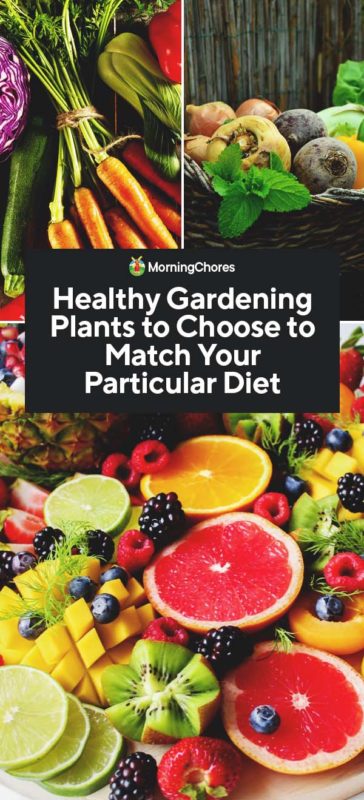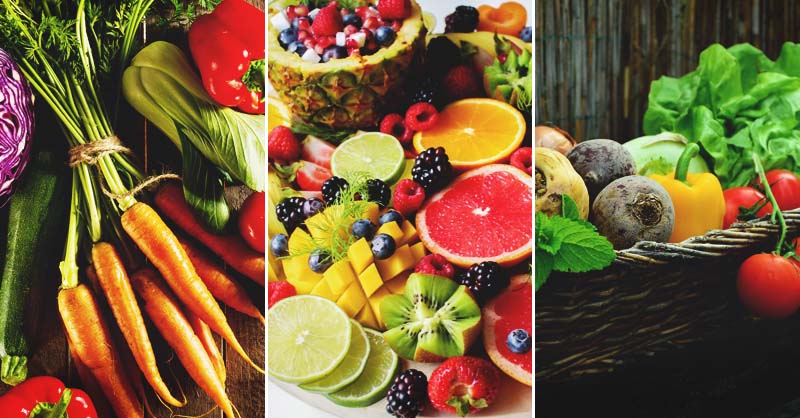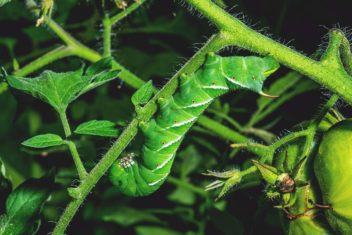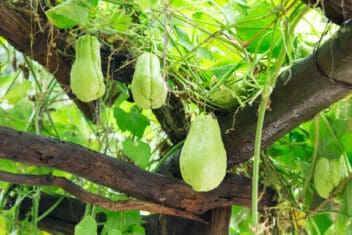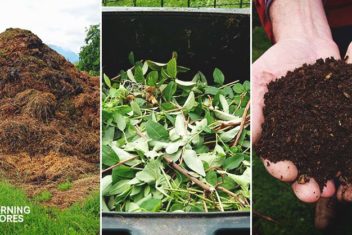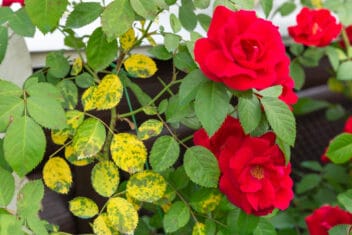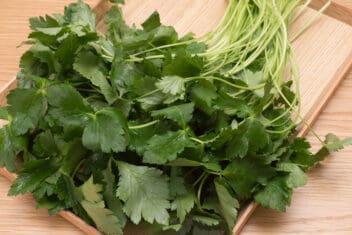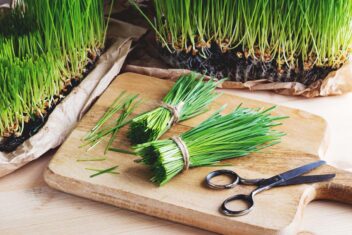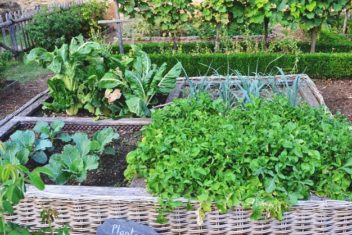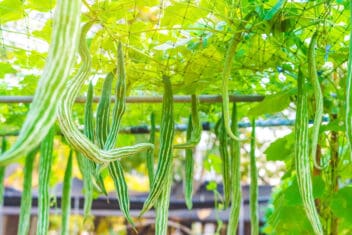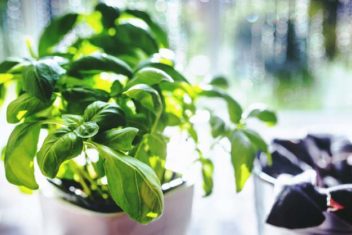Do you grow a garden every year? Are you under the impression everything you grow in your garden is healthy for you?
We hear the term ‘healthy foods’ all the time but depending upon health conditions and food preparations – some foods may be better for us than others.
I’m going to walk you through each area of your garden. We’ll discuss which foods are healthiest in different scenarios and how to keep the most nutrients intact when preparing your food.
Here’s how your garden can produce the healthiest results:
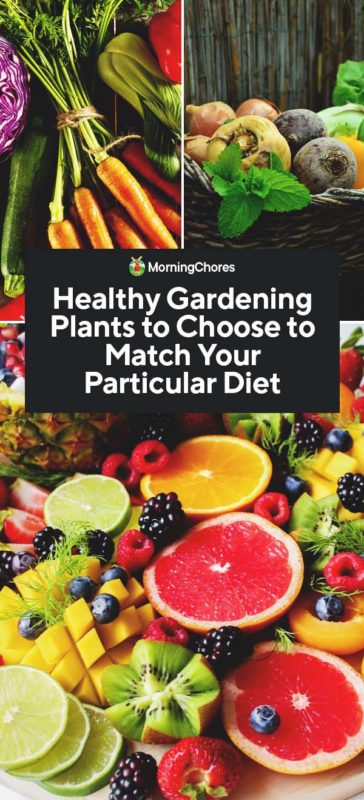
Note: I’m not a medical professional and don’t intend on becoming one. This is meant for informational purposes only.
What to Plant for Healthy Gardening
Fruits
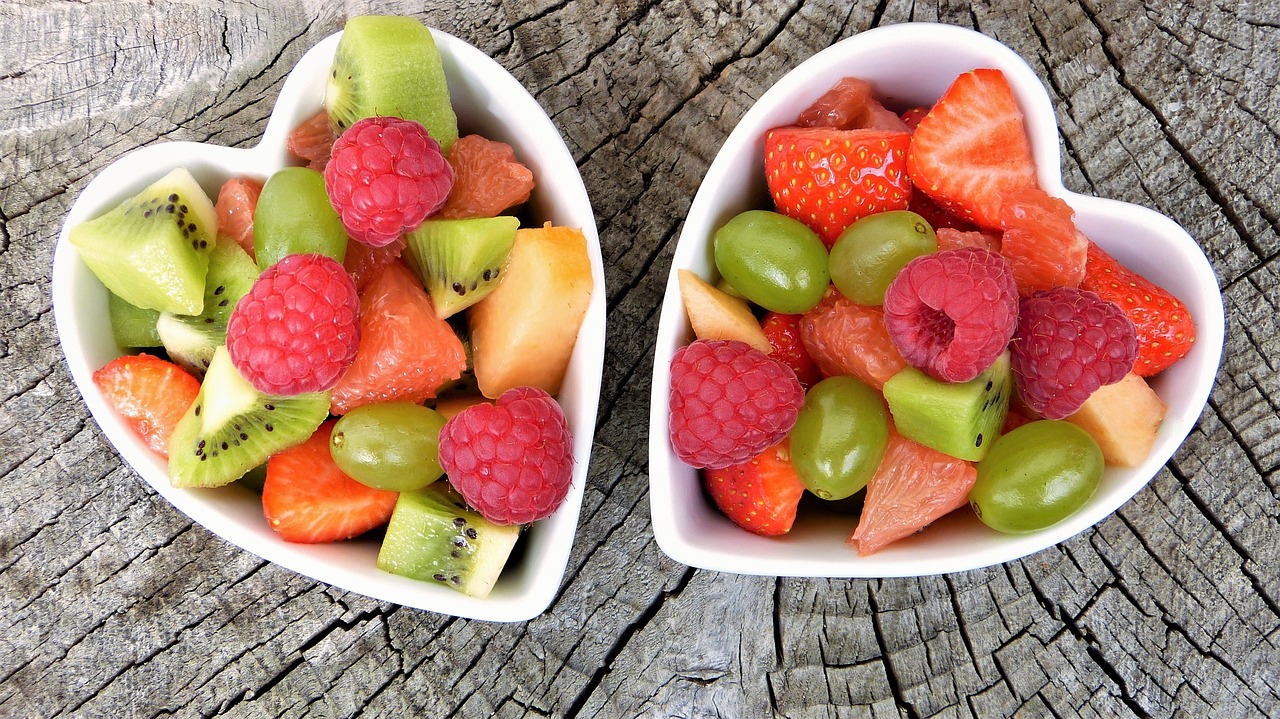
There are a wide variety of fruits. The biggest drawback to fruit is their high natural sugar content (though there are some low sugar options.) If you eat too much fruit, your body will increase its sugar intake, and this could cause negative results if you’re trying to maintain a healthy weight or if you struggle with high blood glucose levels.
Also, if you’re trying to watch your carbohydrate intake, fruits can work against you. However, if you’re someone who doesn’t struggle with any health issues, then fruit is good for you.
It has many vitamins and nutrients your body needs, and you can absorb them in a tasty way. Plus, many fruits are high in fiber which is an important part of a healthy diet.
Fiber improves the way waste moves out of your body and can help you maintain a healthy weight.
By practicing moderation, fruit can be a healthy part of your diet.
These fruits are good choices to grow in your garden for better health:
There are some fruits you may wish to avoid if you need to follow a low glycemic index diet. These fruits break down too quickly because they’re mainly water and will cause your blood glucose to rise faster than other fruit options.
If blood sugar is a concern for you, avoid growing these fruits:
- Watermelon
- Cantaloupe
- Cherries
- Grapes
Nightshades
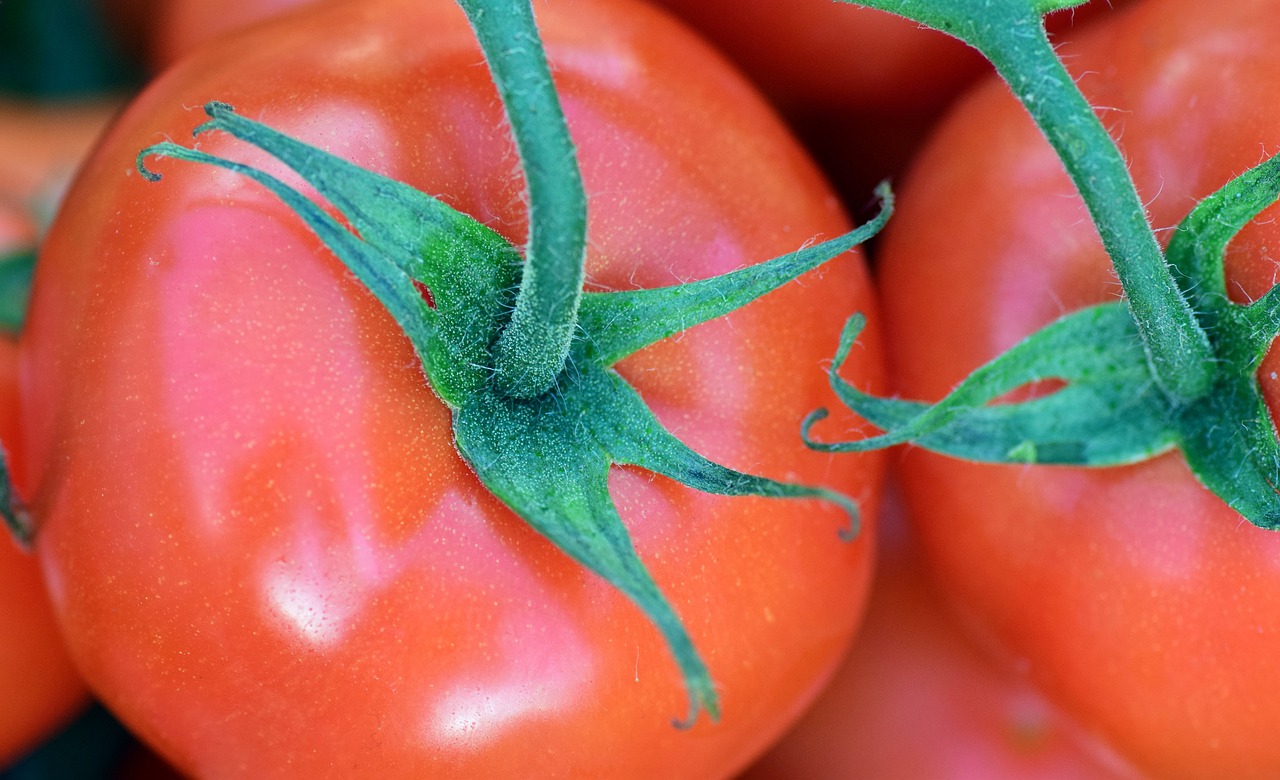
There’s nothing I look forward to more in my garden than a home-grown tomato. Tomatoes, peppers, and eggplants are all considered part of the nightshade family.
This group also contains white potatoes. I gave potatoes their own section because there’s a great deal of information to cover for them when considering health.
However, it’s thought nightshade plants could impact inflammation in your body. There’s no research which points to this specifically.
If you feel achy, experience an increase in your arthritis pain, or have other negative symptoms when eating nightshade crops, you may have a food allergy and should avoid these plants.
If you don’t experience negative symptoms when consuming them, try to include them in a balanced diet. Nightshades are high in potassium, fiber, Vitamin A, Vitamin C, Vitamin B, potassium, and folic acid.
The only time you may run into a problem (outside of food allergies) with nightshades is when trying to watch your carbohydrates and sugar intakes.
Tomatoes, peppers, and eggplants are low in both sugars and carbohydrates. Eggplants’ fiber is extremely high which is good for those who are trying to balance their sugar levels.
The higher the fiber the longer it takes the body to break it down which means your sugar levels does not rise quite as quickly.
However, white potatoes are higher in carbohydrates and sugar. Therefore, it’s frequently recommended they be avoided or not consumed as frequently if you struggle with insulin levels.
Root Crops
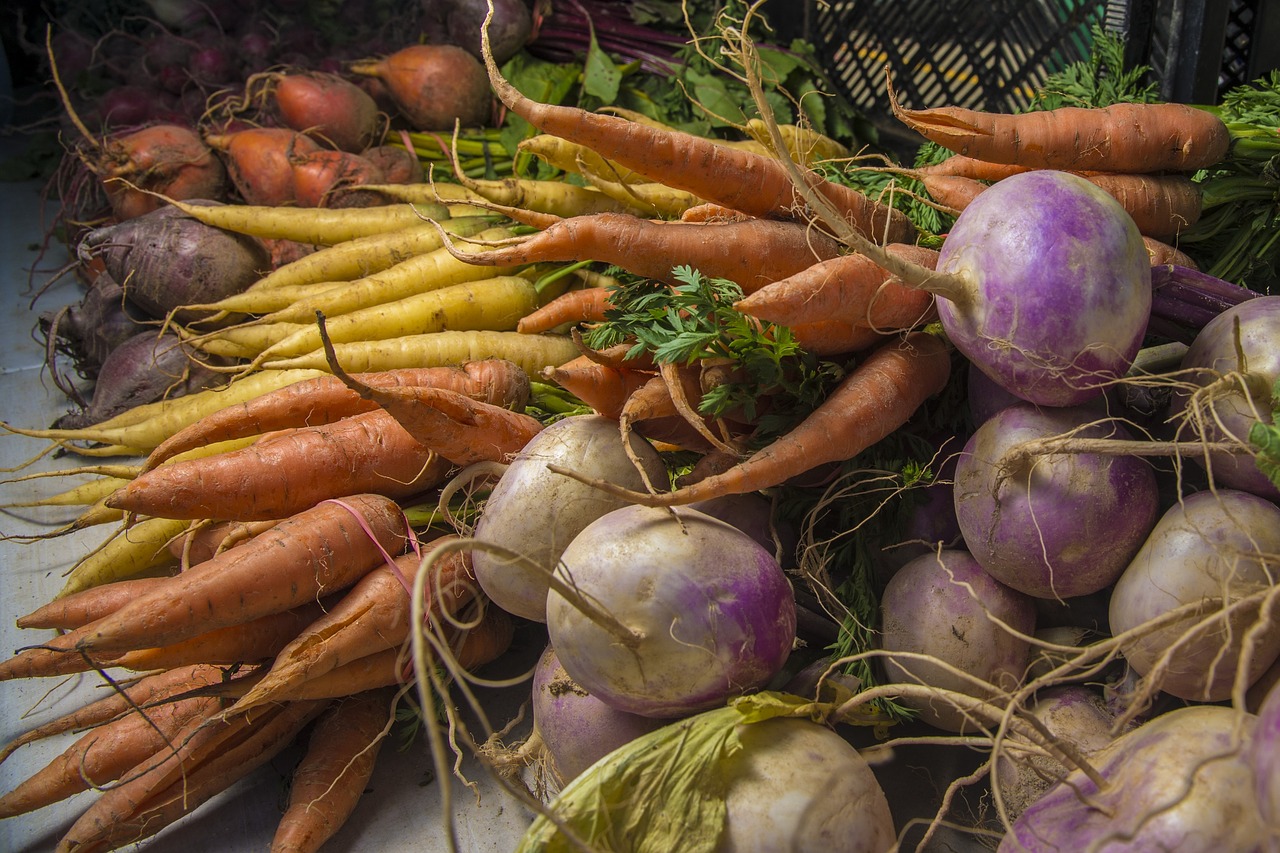
Growing root vegetables in your garden is a wonderful idea because they’re easy to grow, and they store well over the winter in a root cellar.
Root vegetables are low in calories but high in nutrients (such as Vitamin A, potassium, and calcium.) The downside to root crops is the amount of starch-filled carbohydrates they contain.
Which can be a problem for people with high blood sugar or those who are battling to maintain or achieve a healthy weight.
If you love root vegetables, consider growing them but consuming them in moderation. If you have no health issues, eating one serving of a root crop a day shouldn’t hurt you.
Be aware of how much you’re consuming, though, because when you eat too many carbohydrates your body stores them as fat instead of burning them as fuel.
Here are a few root crops you may want to include in your garden this year:
- Carrots
- Parsnips
- Rutabagas
- Turnips
- Onions
- Beets
- Sweet potatoes
Potatoes
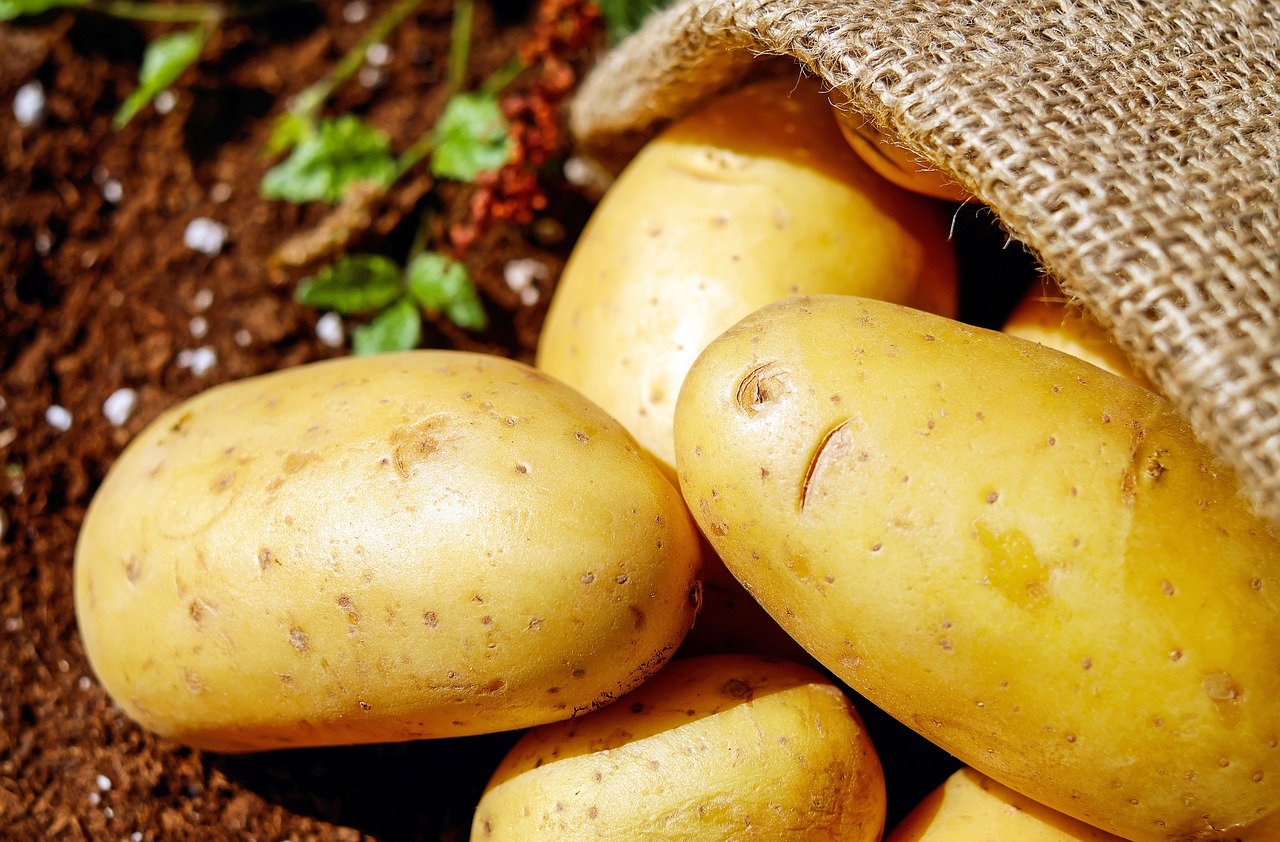
Potatoes can belong to the nightshade group or root crops. There’s a ton of information out there about them which is why I wanted to give them their own section.
This would allow us to discuss potatoes in greater detail. Most people love potatoes. They’re delicious whether baked, fried, boiled or mashed.
They contain many vitamins our bodies need, but they can also wreak havoc on our blood sugar levels and weight if overconsumed.
Here’s the thing. If you’re concerned about your insulin levels rising too fast because of white potatoes breakdown too quickly, you can enjoy sweet potatoes.
They’re higher in fiber and take the body longer to break them down. Again, they should only be consumed in moderation.
If you love white potatoes, realize they’re packed with starchy carbohydrates. This is good when consumed in small amounts but can become bad if you eat too many because your body won’t be able to burn the carbs.
Instead, they’ll be stored as fat.
How can you avoid overeating potatoes? I’ve recently learned from my nutritionist – if you’re going to eat potatoes, try slicing and baking them.
This will allow you to see how much you’re eating. If you eat a whole baked potato, it’s easy to justify eating the biggest potato you can find because ‘it’s only one potato.’ This makes it even easier to go back for seconds.
When we mash potatoes, it’s easy to overeat because there’s a bunch of potatoes in one spoonful.
Plus, it’s hard to eat mashed potatoes without adding butter, cheese, sour cream, and the list goes on. These add-ons are only considered healthy with a keto diet, and you wouldn’t be consuming potatoes if following this diet.
If you choose to add potatoes to your garden (which I do every year) be careful how many you eat at one time. This will still allow them to be considered ‘healthy’ food.
Leafy Greens
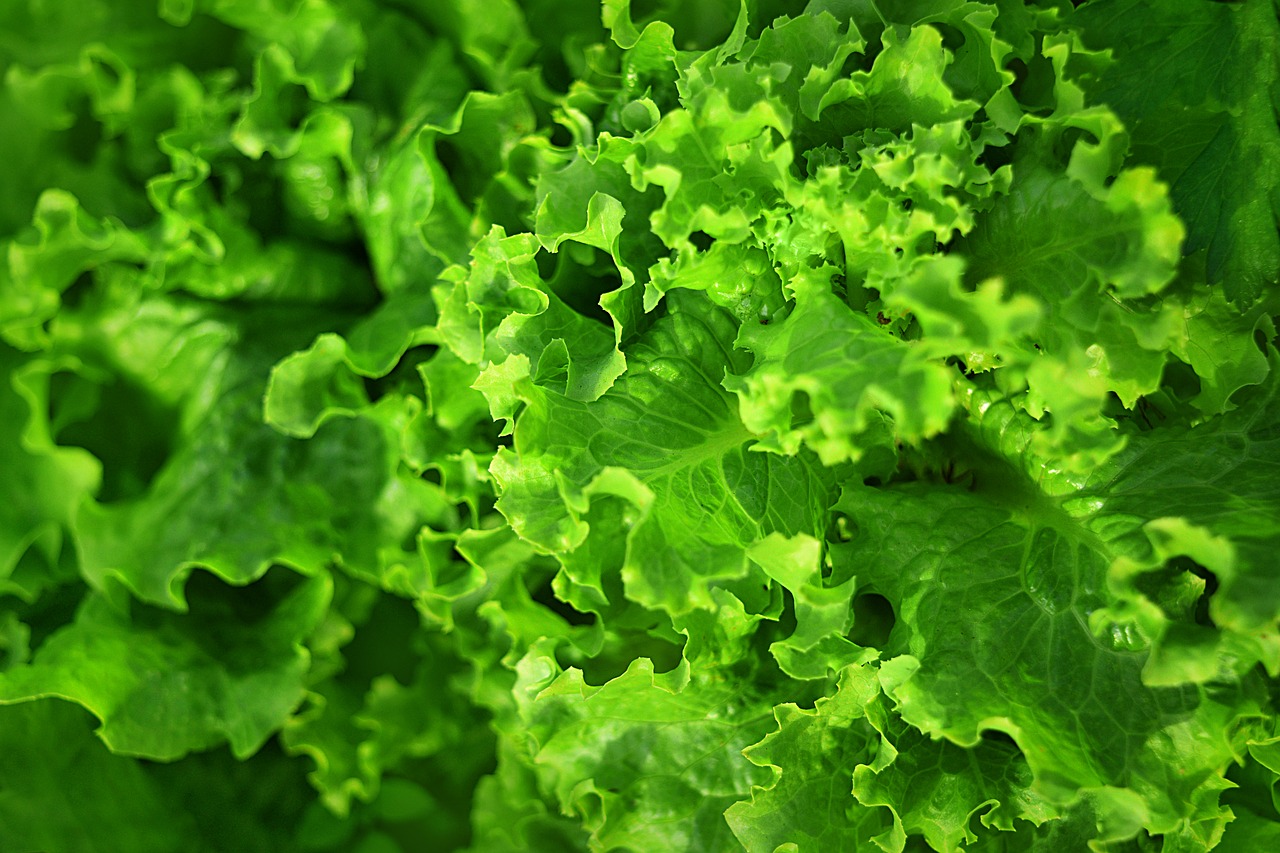
Leafy greens – they’re the one group of healthy gardening vegetables it seems no one has spoken out negatively against. Instead, the biggest complaint is as a society we don’t eat enough of them.
Unless you have stomach issues which won’t allow you to properly digest leafy greens, you should eat as many leafy greens as you can.
However, look at the leafy green when it’s cooked. If it breaks down quickly under the heat, know it’ll break down quickly in your stomach once it hits the acid.
Try to choose sturdier leafy greens (to stay full longer) or know you’re going to need to eat even more leafy greens to avoid hunger.
If you’re trying to decide which leafy greens you should include in your garden, here are a few suggestions:
- Kale
- Cabbage
- Broccoli
- Lettuce
- Spinach
- Arugula
- Swiss Chard
- Microgreens
- Asparagus
- Mustard or turnip greens
A Different Focus on Healthy Gardening
Medical science is showing over time if we control our blood sugar levels, it makes it easier to lose weight and maintain a healthy weight.
However, there are still some people in the world who don’t struggle with their blood sugar levels and aren’t concerned about their carbohydrate intake. What makes food healthy for them?
There are a few things to consider if you’re planting a garden and don’t have any health issues. Maybe your biggest concern is avoiding many of the health issues society faces.
Here’s what you should know about planting a garden:
- If your concern is a plant-based diet, you should include variety in your diet to get the nutrients you need, and you should consume enough vegetables to keep up with the protein your body needs. Otherwise, plant away!
- Are you someone who is more concerned over the calories you eat than the carbohydrates? This still works for many people. Vegetables are low-calorie and high nutrient options which should be included in your diet. Again, variety is key and moderation on certain plant types is important as well.
- Some people prefer to eat for nutrients and stick with a whole foods diet. If this is what works for you, or it was recommended by your doctor based upon your medical situation, or is the way you’ve eaten your entire life, then stick with it. Variety is important to make sure you get the nutrients you need, but anything you include with healthy gardening will help with this style of eating and be a healthy choice.
Healthy Food Preparation
One of the most significant ways we mess up when preparing out healthy gardening crops is how we eat them and what we add to them.
To get the maximum amount of nutrients from your food, eating them raw or steaming them is your best option, according to some.
When you boil them or heat them to a certain point, it starts cooking the nutrients out of the food. If this is the only way you enjoy eating vegetables, it’s better to eat them overcooked than not at all.
The upside to cooking your veggies is when you add the heat, it may decrease certain vitamins, but it can also enhance other nutrients.
Expect this trade-off and do your research as to which vitamins you’d be trading. This may help you determine how to best prepare your food.
Also, we tend to add too many added ingredients to our vegetable dishes. If you follow a keto-diet, you may need to add butter and cheese to take in the amount of fat you must have in a day.
However, if you’re someone following a low-calorie diet, a whole foods diet, or eating for nutrients only, you may wish to add a sprinkling of salt or other seasoning and be done with it.
Again, this all depends upon your health and nutritional needs. Be sure to be intentional about what you add to your vegetables to make sure it aligns with your diet and keeps you on the healthy track you’ve set for yourself.
This concludes our tour of healthy gardening. If there’s one thing I’m learning on my journey of food production and health is everyone’s definition of health is different, and it’s because everyone’s body is different.
What works for one person to maintain a healthy weight, balanced blood sugar levels, and balancing any other health issue, may not work for the next.
Therefore, you should do plenty of research, talk to your doctor, and develop an eating plan which works best for you. Plant your garden based upon your situation and findings.
Wherever your healthy gardening journey leads you, remember, food can either add to your condition or help you heal. All the effort you put into raising crops and figuring out what works best for you and your family is worth it in the end.
